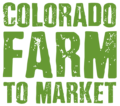Find out if you are covered by the FDA’s Food Safety Modernization Act (FSMA) Produce Safety Rule at www.coproducesafety.org.
Definition: The use of the term “melons” in this document refers to cantaloupe (also known as muskmelons), honeydew, watermelon, and variety melons (e.g., “Canary,” “Crenshaw,” and “Galia”), both as raw agricultural commodities and the value-added fresh-cut products derived from them. Melons may be grown and harvested for fresh market (i.e. fresh, unprocessed form) or for “fresh-cut/value-added products” (i.e., minimally processed, such as trimmed, peeled sliced or diced and then bagged or pre-packaged), cooled, shipped to retail, wholesale or processing, and offered for sale to the consumer.
Harvest/Post Harvest: FDA Guide to Minimize Microbial Food Safety Hazards of Melons which is intended to supplement existing guidances including Guidance for Industry: Guide to Minimize Microbial Food Safety Hazards for Fresh Fruits and Vegetables (October 1998) (GAPs Guide), which applies to fresh produce commodities, and the “Guidance for Industry: Guide to Minimize Food Safety Hazards for Fresh-cut Fruits and Vegetables” (February 2008) (Fresh-cut Guide), which applies to fresh-cut produce. The GAPs Guide provides recommendations for growers, packers, and shippers to use good agricultural practices in those areas over which they have control to prevent or minimize microbial food safety hazards in fresh produce. The Fresh-cut Guide provides recommendations to fresh-cut produce processing firms to enhance the safety of fresh-cut produce by minimizing the microbial food safety hazards relative to fresh-cut processing operations. The information included in this melon-specific guidance is consistent with recommendations provided in the GAPs Guide and the Fresh-cut Guide.
Food Safety: The human pathogens most often associated with produce (Salmonella and E. coli O157:H7) cause infection and illness by the fecal oral route of food contamination and may involve vectors such as human hands, water and soil. Therefore, melon food safety programs should pay special attention to preventing fecal contamination from human hands, water and soil that contact melons. The melon industry recognizes that once a melon is contaminated, removing or killing pathogens is difficult. Therefore, prevention of microbial contamination at all steps—from production to distribution—is strongly favored over treatments to eliminate contamination after it has occurred. The rough, netted surfaces of some types of melon provide an excellent environment for microorganisms that can be transferred to the interior surfaces during cutting.
- To minimize the risk of cross contamination, use a vegetable brush and wash melons thoroughly under running water before peeling or slicing.
- Cut melons should always be refrigerated (maintained at 41°F or below), unless they are cut and immediately served to the consumer.
- For more information about safely offering melons samples, please see Farmers’ Market Vendor Guide for Preparing and Offering Food Samples.
Good Agricultural Practices (GAPs): Good Agricultural Practices have been adopted widely in the melon industry to reduce sources of contamination in the field and at the packinghouse, and specific GAP recommendations have been suggested for melons FDA Guide to Minimize Microbial Food Safety Hazards of Melons.
Distribution Method | Collapse All)
You are selling your product at a farmers’ market, CSA, roadside stand, or other direct to consumer outlet
Licensing: If you are selling melons you have grown, there are no specific licensing requirements. Whole uncut fresh fruits are considered raw agricultural products and are exempt from licensing requirements of the Colorado Retail Food Protection Act. Samples of these products may be offered to consumers by vendors that are not licensed as retail food establishments and, therefore, those vendors are not required to comply with the provisions of the Colorado Retail Food Establishment Rules and Regulations. If a vendor is selling only uncut fruit and vegetables, the vendor is exempt from retail food establishment licensure even if offering samples.If you are selling melons that you have purchased directly from a Colorado grower or from a wholesaler, you will need a Farm Product Dealers License.
Labeling: No specific labeling requirements. Unpackaged, single ingredient foods like fruits and vegetables do not need labels.
Sales Tax Liability: General sales tax information.
Weights and Measures: If you are selling your product by weight, you must follow the Colorado weights and measures requirements. Melons might also be sold by count, refer to the fruits and vegetables section of weights and measures for guidelines.
You are selling your product to a store, restaurant, food cart, K-12 school, university, hospital, or other retail food establishment
Licensing: If you are selling products that you have grown, no specific licensing requirement for selling whole raw agricultural products in the wholesale market.If you are selling melons that you have purchased directly from a Colorado grower or from a wholesaler, you will need a Farm Product Dealers License.
Labeling: The state does not require specific labels, however your buyer might have specific requirements. Check with your buyer for product identification and traceability requirements.
Sales Tax Liability: General sales tax information.
Weights and Measures: If you are selling your product by weight, you must follow the Colorado weights and measures requirements. Melons might also be sold by count, refer to the fruits and vegetables section of weights and measures for guidelines.
Value Added Products: Dried melon, cut melon
Related Links:
- FDA Guide to Minimize Microbial Food Safety Hazards of Melons
- Colorado State University Drying Fruits Fact Sheet
- Colorado State University Cantaloupe Information
- Key Points of Control and Management of Microbial Food Safety: Information for Producers, Handlers and Processors of Melons from University of California, Davis
- GAPS Practices for Production and Handling of Melons from South Eastern Regional Program
- Commodity Specific Food Safety Guidelines for the Melon Supply Chain
- Video on Growing, Handling and Shipping California Cantaloupes: Part 1
- Video on Growing, Handling and Shipping California Cantaloupes: Part 2
